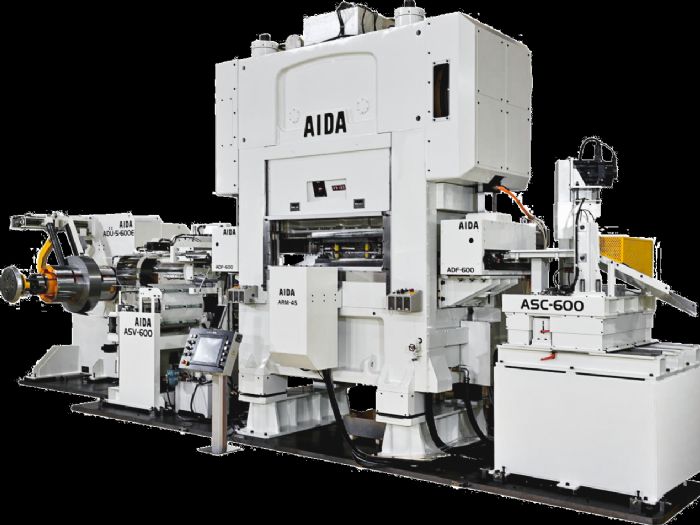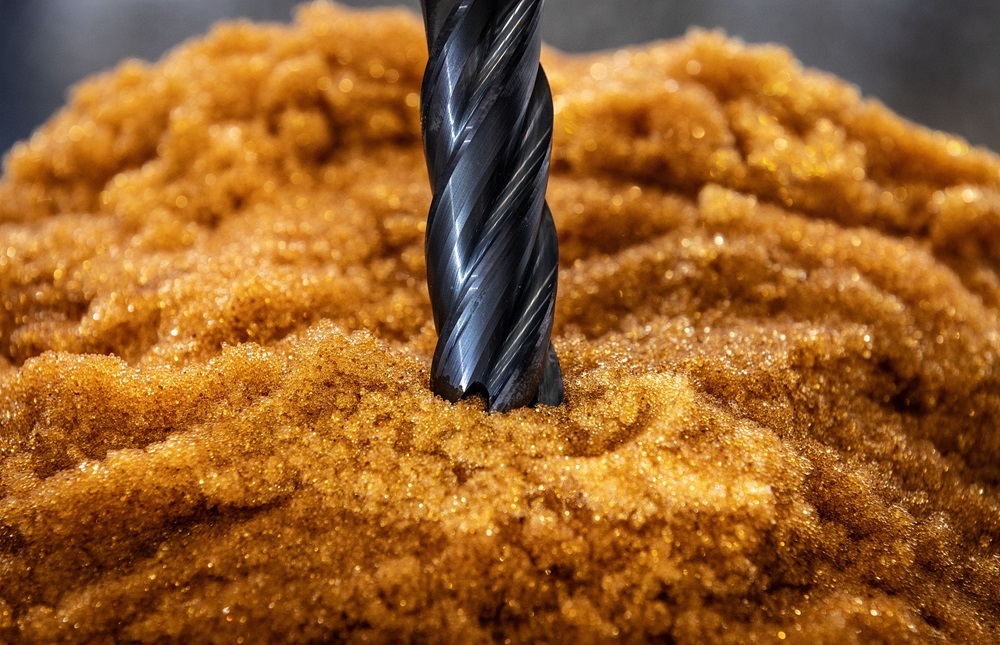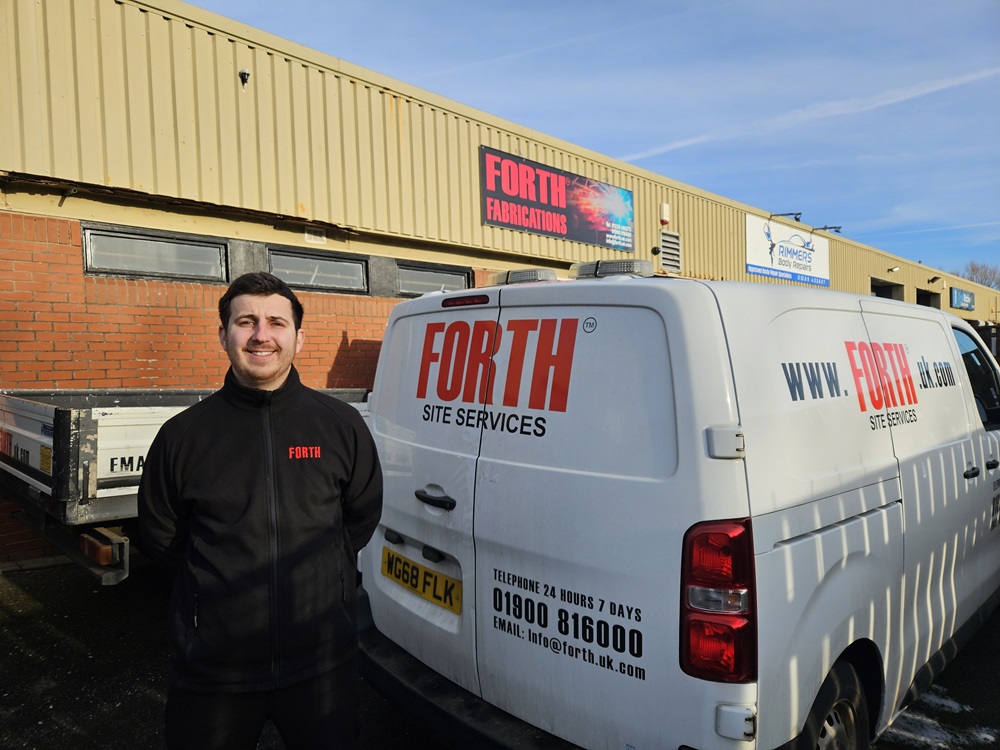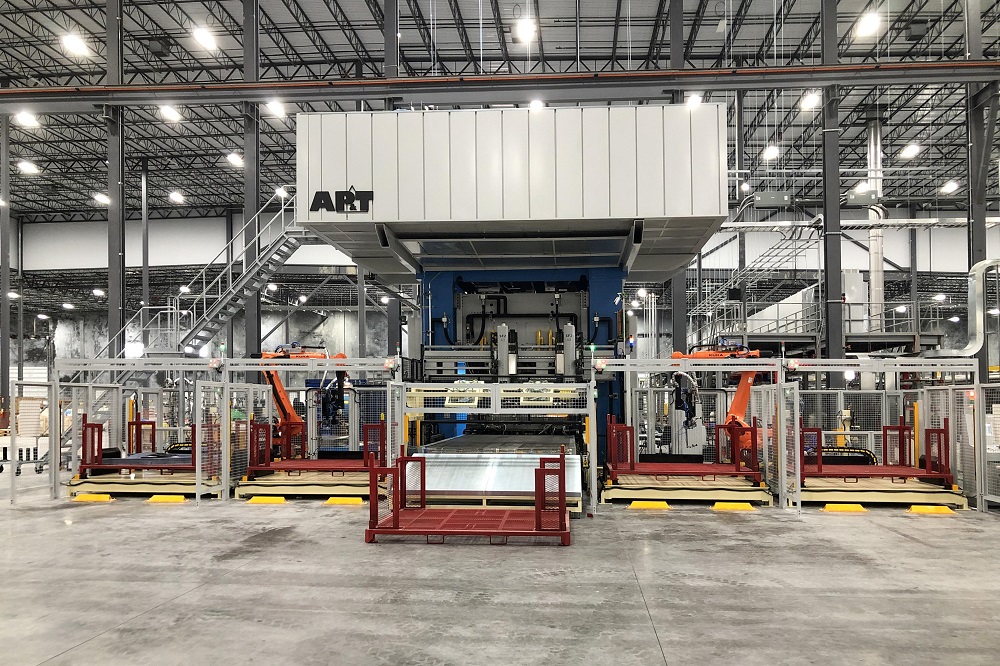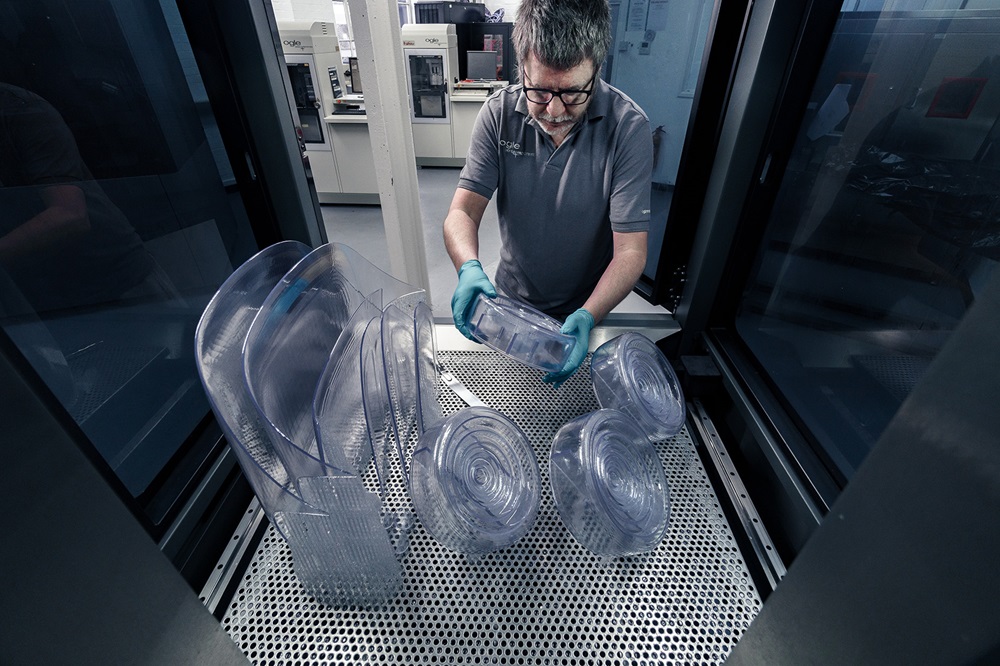Press manufacturer AIDA reports that its high-speed precision press line for producing EV
drive motor cores has won a ‘2023 Ten Greatest New Products Award” from the Nikkan
Kogyo Shimbun (Business and Technology Daily News). The award was established in 1958
for the purpose of encouraging the development of superior new products and spurring
even higher technological advances in Japanese industry.
In order to provide customers with the optimal high-speed precision press line for producing
difficult-to-form EV drive motor cores, AIDA developed a complete array of peripheral
equipment to achieve world-class high-speed forming, including an un-coiler, an S-loop
device, a feeder, a core rotator and a scrap cutter. The system features cutting-edge digital
and AI (artificial intelligence) technologies, enabling AIDA to provide customers with a
comprehensive solution for an entire high-speed precision press line that incorporates DX
(digital transformation) technology.
The judges said that, until now, no press manufacturer had independently developed and
manufactured an entire system for forming EV drive motor cores, as well as peripheral
equipment and software. A total solution of this type previously required ordering from
third parties.
Notably, the facial recognition system prevents erroneous operation by unauthorised
personnel, while AIDA also developed an oil temperature management system to maintain
high-precision forming and a predictive failure detection system. AIDA says it is the first to
achieve automated production in this field. The company expects the system to boost EV
motor core production and help combat the existing shortage of skilled workers.
Moving forward, AIDA says it will continue striving to develop environmentally friendly
technologies and further improving customer service.
For further information www.aida.co.jp/en






